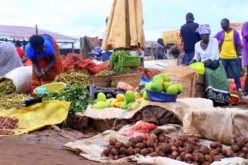LDC advice to Europe: ‘Get your house in order’
EXCLUSIVE INTERVIEW: DEBAPRIYA BHATTACHARYA
Originally published on devex.com
Dr Debapriya Bhattacharya, Chair, Southern Voice on Post-MDGs was interviewed by Richard Jones, Devex Associate Editor on Post-MDG issues in Brussels during Dr Bhattacharya’s recent visit to Brussels as an eminent panelist and discussant at the launching ceremony of European Report on Development 2013.
There is one significant way that the European Union can aid the world’s least developed countries, according to Debapriya Bhattacharya, a distinguished fellow at the Centre for Policy Dialogue, a Bangladesh-based civil society think tank.
“In order to help us, get your house in order,” said the chair of Southern Voice, a network of 48 think-tanks in Africa, South Asia and Latin America.
Bhattacharya praised the Millennium Development Goals for bringing the issue of extreme poverty eradication “back into focus.”
Despite the trend towards trade, he told Devex, “nobody is saying that aid has forfeited its role.”
Bhattacharya lamented the “double jeopardy” of declining overall flows and a skewed concentration of aid towards countries in conflict while others were being “punished for their success.”
Looking ahead, the onetime special advisor on least developed countries to the United Nations Conference on Trade and Development said productive capacity, sustainable employment and income were “critical for sustainable poverty eradication in the coming post-2015 framework.”
Here are some excerpts from our conversation with Bhattacharya last week in Brussels.
What impact have the MDGs had on the LDCs in particular? Can they be considered a success?
Notwithstanding all the shortcomings of the MDGs, what they did was to enhance the profile of development cooperation. Although one may think it is a foreign aid driven Northern agenda — certainly aid cooperation came out more strongly in this period — the issue of extreme poverty eradication was brought back into focus. So the combination of development cooperation and poverty eradication was pretty useful. And many — most — of the developing countries mainstreamed these MDGs into their national plans. So that’s why you will see that there has been uneven, but successful, implementation of the MDGs in many low-income countries. The country I come from, Bangladesh, did a stellar performance, particularly with regard to halving the poverty level.
And what progress has been made with regard to developing productive capacities?
The issue of the sustainability of the outcomes will critically depend on the ability of the countries having sustainable incomes. This can only come through productive capacity-building in the area of infrastructure to create an enabling environment for investment, in the area of manufacturing industries, so that you add value to your products, and also high-value services, which connects you to the global markets in a very effective way. So productive capacity, sustainable employment and income would be critical for sustainable poverty eradication in the coming post-2015 framework.
What role do you see for South-South cooperation, particularly among emerging economies such as the BRICS as they transition from aid recipients to aid donors?
The emergence of the southern countries as major economic powers is a positive element in the new global framework. They come as a supplementary source of resources, both in terms of concessional aid, but also in terms of access to technology, in terms of getting more finance and therefore foreign direct investment, and also to sell the low-income countries’ products in their markets. You can see that many countries are trying to devise their own preferential tariff schemes for that purpose.
Having said that, we should be mindful about the fact that there is sometimes a lack of transparency in terms of getting that aid. There are also lots of hidden costs and at the same time, we have seen that most of the exports going from low-income countries to the emerging South are commodities such as unprocessed goods, whereas goods going to developed countries are manufactured goods — particularly textiles, ready-made garments and other things. So we have to see how this relationship of high potential really becomes very beneficial for the low-income countries.
Are we in danger of focusing too much on trade and economic growth as a solution at the expense of issues such as equity?
Nobody is saying that aid has forfeited its role. In fact there is a 0.7 percent of GNI [commitment] among the DAC countries — it is still on the table, but yet to be fulfilled. So that demand continues to be there. But having said that, we understand that ODA is not the only issue necessary for structural change.
That’s why the trade and investment issues are so important — indeed, critical — and it does not mean that ODA can help ameliorate inequality while trade and investment create inequality. We don’t think that is the case, because there are macro-economic policies, there are social protection policies, safety-net programs, which should package it right so that poor people should not fall through the net in that way. At the end of the day, I think the issue is about making contextually relevant national policies.
According to the recent OECD-DAC report, we saw support for LDCs decline in 2012 while support — albeit through soft loans — for middle income countries increased. What was your take on that?
I think there is double jeopardy. It is not only the overall flow which is declining, but also the concentration — this aid is very skewed. You will find two or three countries — countries in conflict such as Afghanistan or DRC —receiving a significant percentage of it. Those countries that are relatively doing better are being punished for their success.
But the point is that the current economic crisis in Europe — particularly the instability we’ve seen in the eurozone — is a matter of great concern for us too. If growth goes up, if domestic demand goes up, if unemployment reduces, I think we will have a bigger market in Europe for the low-income countries. We will have better access to ODA, which is falling at this moment, and we will have better foreign direct investment coming in from those countries too.
So we are looking for a road to recovery for the European Union as fast as possible, so that we can have a good finish for the MDGs by 2015. The message is very clear: in order to help us, get your house in order. That would be one of the biggest contributions to finishing the MDGs in the right spirit.
1,582 total views, 1 views today






